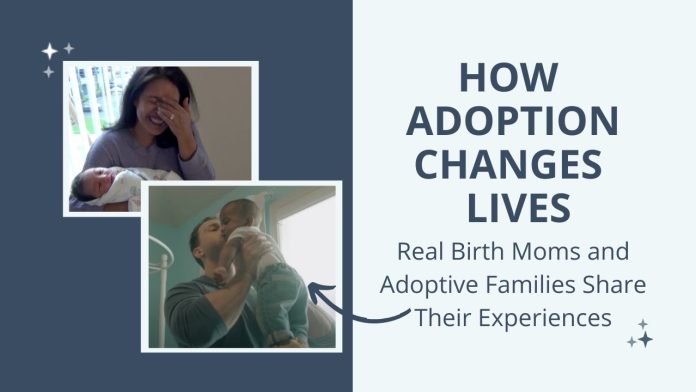Can You Put a Baby Up for Adoption After Birth?Introduction to Post-Birth Adoption
Post-birth adoption is an option that allows birth parents to place their baby with adoptive parents after the baby is born. This decision can be made at any time during the hospital stay or even after the parents have brought the baby home. The process starts when the birth parents decide they are not in a position to provide the care they feel their baby needs. This choice can be made for various reasons, including financial hardships, personal circumstances, or a realization of unpreparedness for the demands of parenthood. So the question is, can you put a baby up for adoption after birth?
The adoption process involves several steps, including legal requirements and emotional considerations. Birth parents will need to legally terminate their parental rights, which involves signing consent forms and often working with an adoption agency or attorney to facilitate the process. Emotional support is essential during this time, as placing a baby for adoption can bring about feelings of loss and grief. Support systems, such as friends, family, and professional counselors, can offer the necessary guidance and reassurance.
Understanding the different types of adoption—open and closed—can help birth parents decide what level of contact they wish to maintain with their baby and the adoptive family. Some parents might find comfort in knowing their baby’s progress through an open adoption, while others might prefer the privacy of a closed adoption. Regardless of the choice, having access to comprehensive support and counseling services can make the adoption process more manageable for everyone involved.
Reasons for Opting for Adoption After Birth
Parents might choose to place their baby for adoption after birth for various personal and practical reasons. Financial difficulties are a significant factor; providing for a child’s needs can be demanding, and some parents may not have the resources to do so. Personal circumstances also play a crucial role, such as a lack of readiness for the demands of parenthood or an unstable living environment. The realization of not being emotionally or physically prepared to care for a child can emerge only after the baby is born. In these instances, adoption can offer a responsible solution, allowing the child to grow up in a supportive and loving environment. Another common reason is the desire to provide the baby with opportunities that the birth parents may not be able to offer at that time. This could include a more stable household, better educational opportunities, and a nurturing family life. Emotional considerations also come into play, as some parents may feel that adoption is the best way to ensure their child’s future happiness and well-being.
The Legal Steps Required
The legal process for placing a baby for adoption involves several important steps, which can vary depending on the state. Initially, birth parents must legally terminate their parental rights, a process that typically includes signing consent forms in the presence of a legal representative. This step is crucial and often must be completed before the baby can be placed with an adoptive family.
Following the termination of parental rights, an adoption agency or attorney will facilitate the baby’s placement with the adoptive parents. This usually involves matching the baby with a family that meets specific criteria set by the birth parents, if they have any preferences. The agency or attorney will handle all the necessary paperwork and ensure that both parties comply with state laws.
Throughout the process, birth parents have certain legal rights. For instance, they generally have the right to change their mind within a specified period, which can vary from state to state. It’s essential for birth parents to understand these rights fully, as well as any deadlines involved, to make informed decisions.
Additionally, court involvement is often required to finalize the adoption. A judge will review the case to ensure that all legal requirements have been met and that the adoption is in the best interest of the baby. This step may include a court hearing where birth parents, adoptive parents, and legal representatives may need to be present.
Legal representation can be beneficial for navigating this complex process. Attorneys specializing in adoption law can provide valuable guidance and help protect the rights of the birth parents, ensuring that the process is transparent and fair for all parties involved.
Emotional Aspects to Consider
Choosing adoption after birth is an emotionally intense experience for many birth parents. Feelings of grief, loss, and even guilt often surface during this period, and it’s important to acknowledge and process these emotions. The journey can feel isolating, but support systems can provide a lifeline. Friends and family members can offer a listening ear and emotional support, while professional counselors are trained to help individuals navigate complex feelings. Counseling sessions can provide a safe space to express and work through emotions, helping birth parents to understand and manage their grief. Participating in support groups with others who have gone through similar experiences can also be incredibly comforting, offering a sense of community and understanding. These groups can provide a platform to share stories, gain insights, and find solace in knowing that others have successfully navigated the same path. Additionally, many adoption agencies provide ongoing support services, which can be incredibly beneficial. These services often include counseling, workshops, and other resources aimed at helping birth parents cope with their feelings and find peace with their decision. Taking advantage of these opportunities can make a significant difference in emotional well-being, ensuring that birth parents do not have to face this challenging time alone.
Selecting an Adoption Agency or Lawyer
Selecting the right adoption agency or lawyer can significantly influence the adoption process. When evaluating adoption agencies, it’s important to look into their reputation and the range of services they provide. Some agencies specialize in offering comprehensive counseling and support to birth parents, which can be incredibly helpful during this emotionally taxing time. It’s also beneficial to inquire about the agency’s approach to post-adoption support, as ongoing assistance can make a significant difference in your emotional well-being.
In addition to agencies, working with a knowledgeable adoption lawyer can be highly advantageous. An experienced attorney can navigate the complexities of adoption law, ensuring that all legal requirements are met and that the process proceeds smoothly. Lawyers can also offer valuable advice on your rights and obligations, helping to clarify any uncertainties you might have. They can facilitate communication between all parties involved, ensuring that the adoption is conducted fairly and transparently.
When making your selection, consider setting up initial consultations with multiple agencies or lawyers to gauge their approach and level of support. Ask questions about their experience, the specific services they offer, and how they handle any potential challenges that may arise during the adoption process. This proactive approach can help you feel more confident and supported throughout your adoption journey.
Open Adoption Versus Closed Adoption
Open adoption allows birth parents to maintain some level of contact or communication with the adoptive family. This can range from exchanging letters and photos to arranging in-person visits. Many find this ongoing connection reassuring, as it provides updates on their baby’s well-being and development. Open adoption can also help the child understand their background and feel more connected to their roots. However, it requires clear boundaries and communication to ensure that all parties are comfortable with the arrangement.
Closed adoption, by contrast, involves no direct contact or communication between birth parents and the adoptive family after the adoption is finalized. All identifying information is kept confidential, providing a sense of privacy and closure. Some birth parents prefer this option as it allows them to move forward without the complexities of ongoing interaction. It also ensures that the adoptive family can fully integrate the child into their lives without external influences.
Each option has its own set of emotional and practical considerations. Birth parents should weigh their preferences and consult with professionals to decide which type of adoption best aligns with their needs and comfort levels. Both open and closed adoptions aim to serve the best interests of the child and respect the wishes of the birth parents.
Support and Counseling Opportunities
Support and counseling play an essential role for birth parents during the adoption process. Many adoption agencies provide these services to help parents navigate their emotions and make well-informed choices. Post-adoption support is particularly beneficial, offering resources like support groups and one-on-one counseling to help birth parents adjust to their new circumstances. These services can provide a safe environment to express feelings, gain insights, and receive comfort from others who have had similar experiences. Educational resources are also available, helping birth parents understand what to expect and how to cope with their emotions. Taking advantage of these opportunities can significantly aid in the healing process, ensuring that birth parents do not have to face their journey alone. Whether through professional counseling or peer support groups, having a robust support system can make a meaningful difference in emotional well-being and overall peace of mind.









